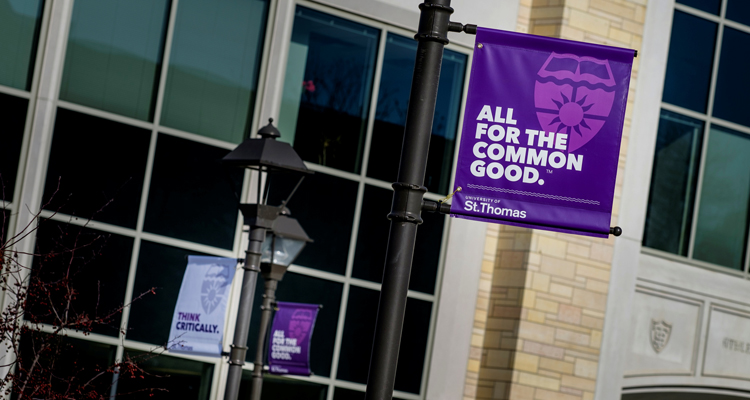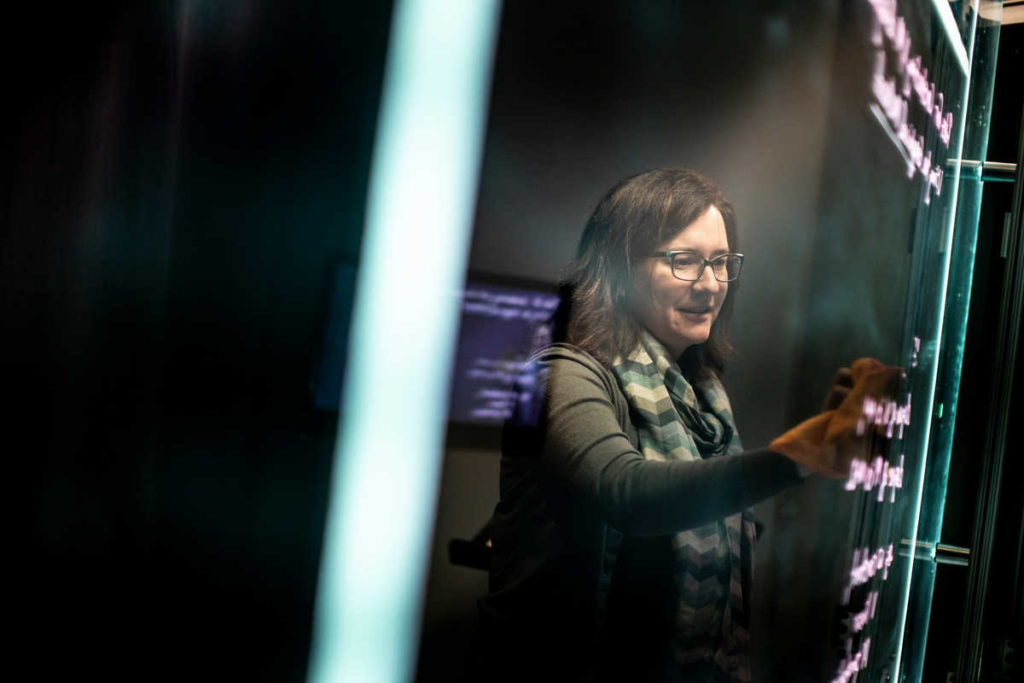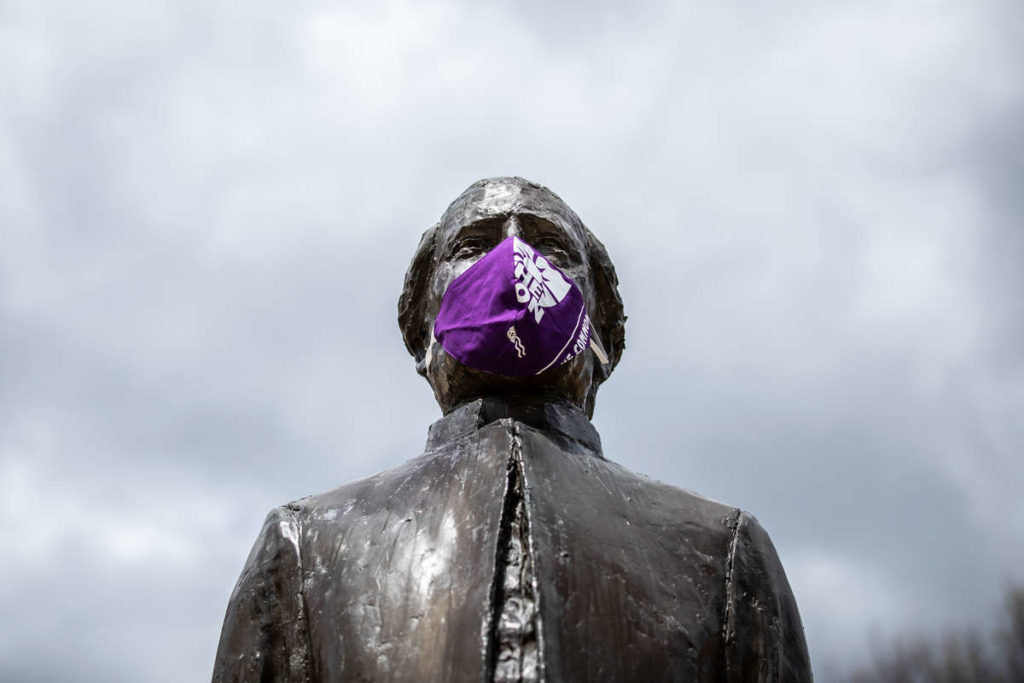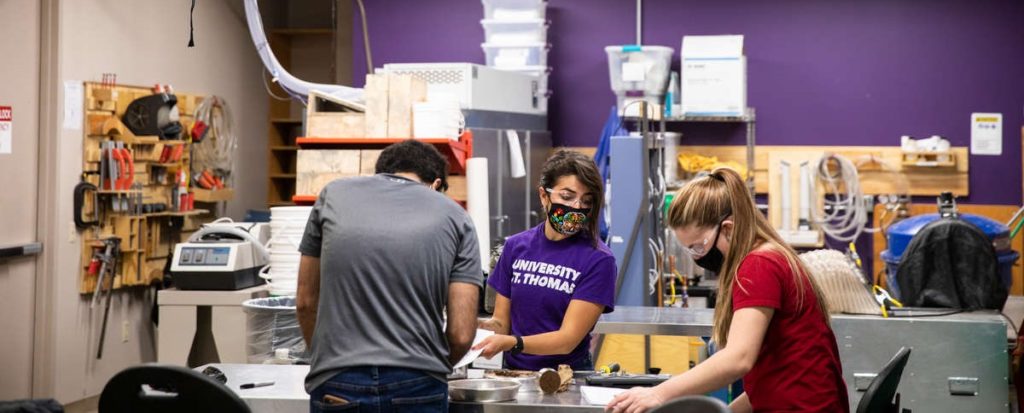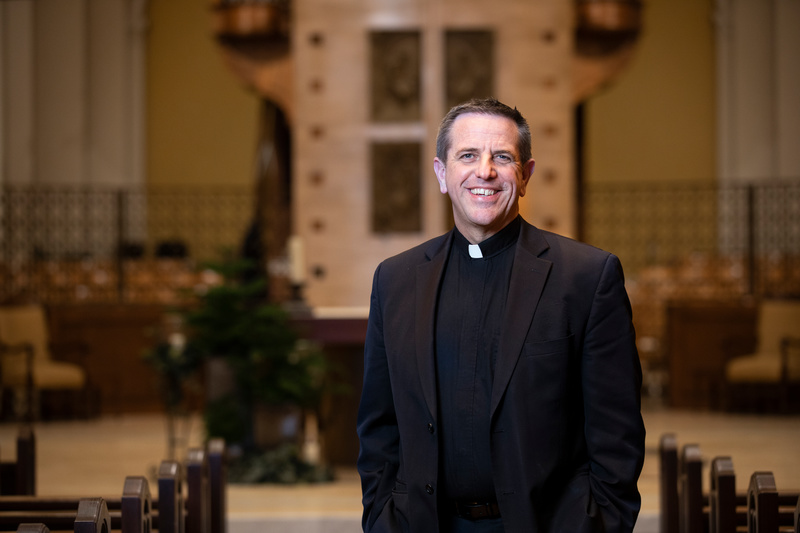Paper hearts are popping up on windows around the world. Children are waving to grandma and grandpa through glass doors. Young, healthy adults are grocery shopping for elderly neighbors. These stories of connection and survival are both heartbreaking and uplifting, as people navigate the COVID-19 pandemic.
Many St. Thomas alumni have answered the call to make a bigger impact in their communities; we caught up with three of them to discuss their evolving roles as a firefighter, distillery owner and a retired entrepreneur.
The volunteer firefighter
“Our ‘normal’ has changed in the past month,” said Chad Ford ’99. As a volunteer firefighter in Bloomington, Minnesota, Ford typically attends weekly trainings and responds to 20 or 30 calls a month. Usually, only a small portion of those are medical calls, but that has changed. He and his fellow firefighters are working to react more quickly to increasing medical calls, which they share with EMS and other first responders.
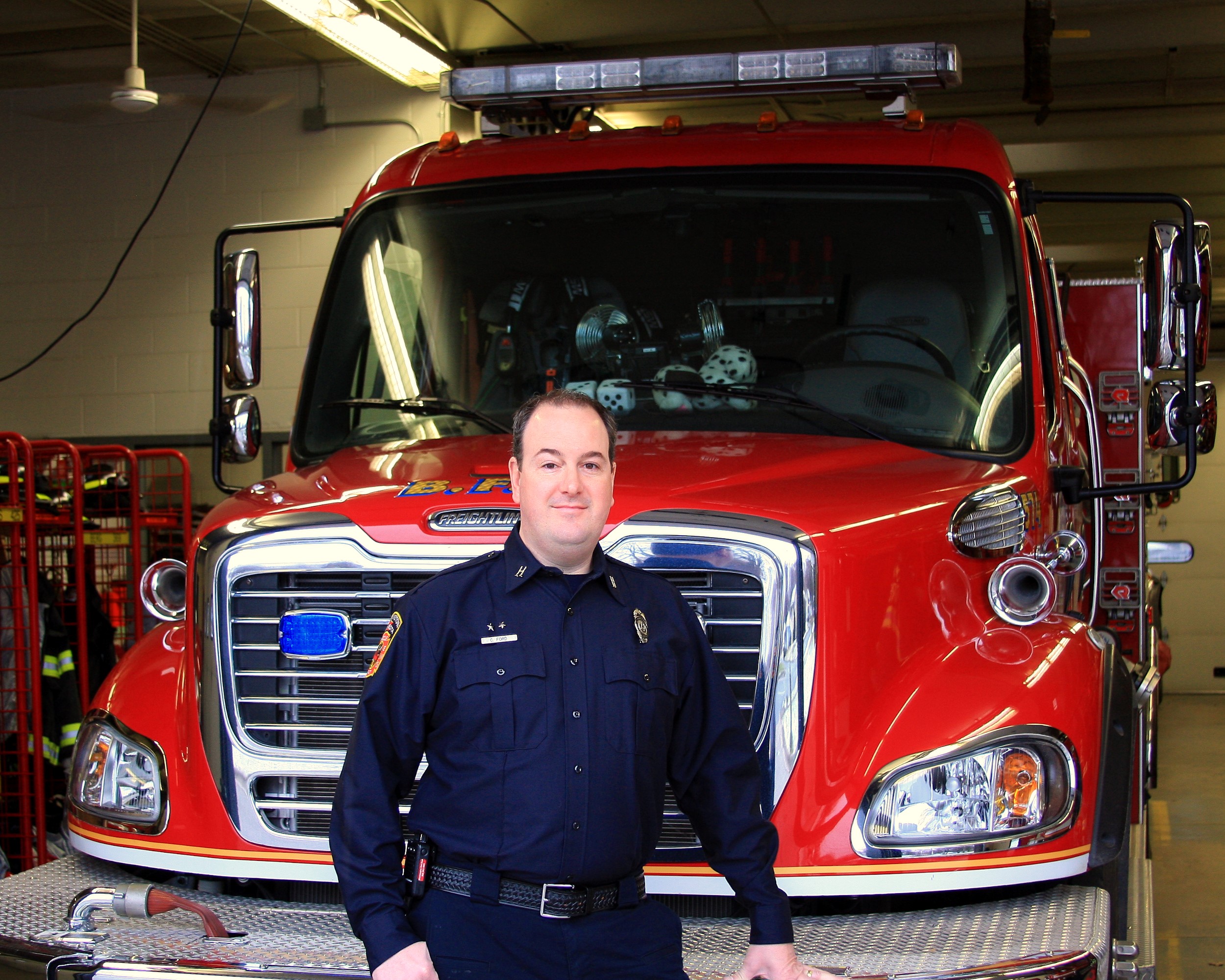
Chad Ford stands in front of engine #4 at Bloomington Fire House #4. Photo courtesy of Greg Guswiler
“Last weekend, I worked at Station 4 for three shifts totaling 24 hours, between Friday night and Sunday evening,” he said. Ford also works full time at CHS Inc. and makes time for his young family as much as he can.
“We usually are called to the more traumatic calls, like heart attacks or where people are physically stuck, so responding to folks with a contagious virus or an upper respiratory issue has required a different approach and additional training, not to mention additional protective equipment we rarely use, like N95 masks, goggles and Tyvek suits,” he said.
As with most people, the “new normal” has added pressure to Ford’s already busy household.
“In addition to staying home with our young kids and working remotely for CHS, being on the front lines as a medical first responder during this pandemic has added stress. I worry – ‘What can I do to ensure I don’t get sick? Ensure I don’t bring it home and get my family sick?’”
Ford is grateful to help others during this time, even amidst the uncertainty.
“Most volunteer and paid-on-call firefighters in Minnesota signed up to put fires out, rescue people from physical entrapments, and, let’s be honest, drive a fire truck. No one thought we’d be responding to highly contagious medical calls during a global pandemic, but here we are. I’m proud to be able to help our community and my neighbors. We’ll get through this.”
The distillery owner
“It’s definitely not our typical single malt whiskey, but it’s what our community needs right now: COVID-19-fighting, World Health Organization-compliant hand sanitizer,” said Phil Steger ’13 J.D., owner of Brother Justus Whiskey Company.
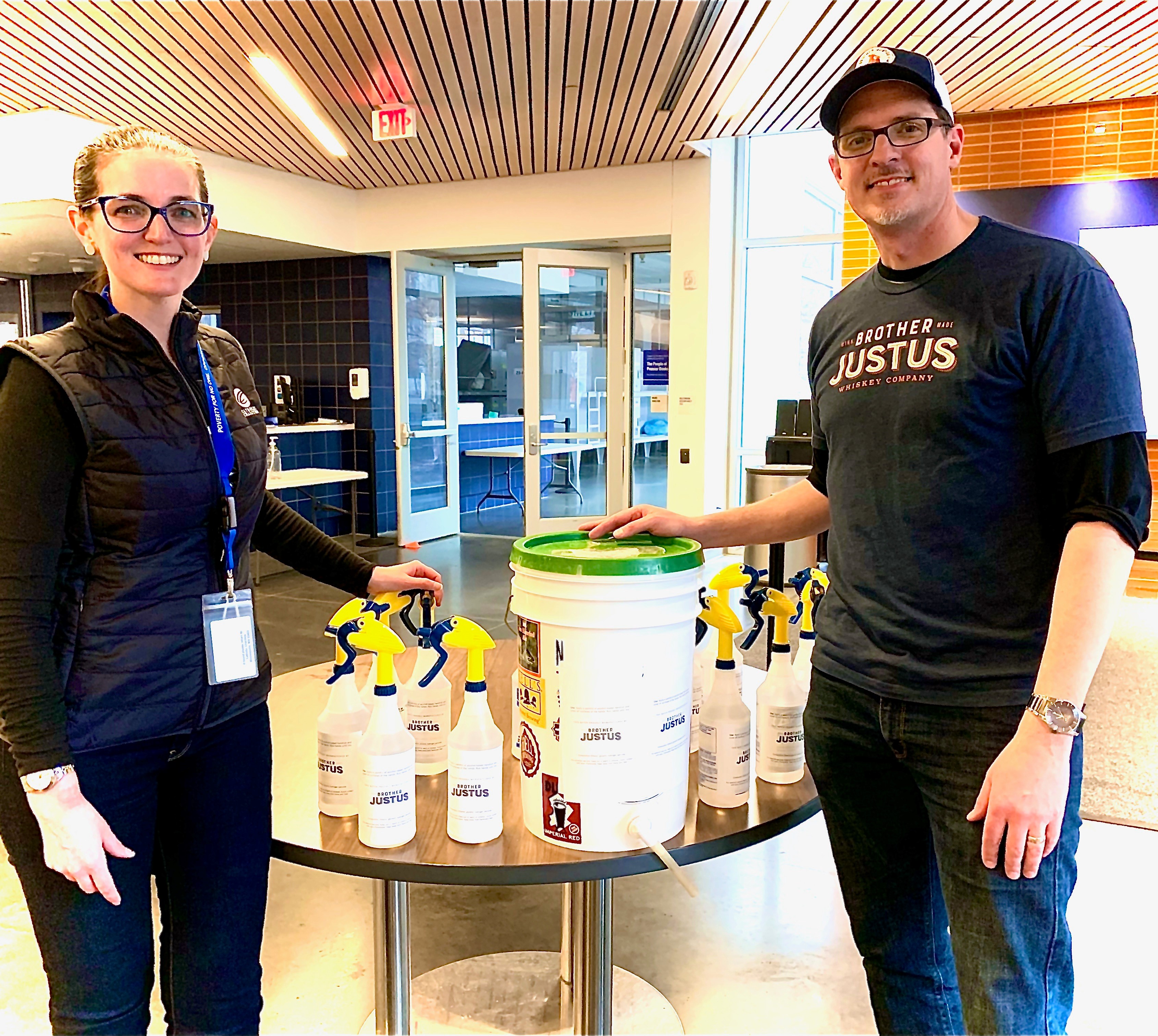
Phil Steger delivers hand sanitizer to Catholic Charities
But when the company decided to make this newly sought-after product, he had specific customers in mind.
The Brother Justus team is making its newest product to support the most vulnerable, many of whom are living and working in homeless shelters.
“Brother Justus is just a drop in the ocean of need, so we are focusing all our efforts on directing those drops to where they will do the most good for the most vulnerable and have the biggest impact on ‘flattening the curve,’” Steger said. “When we delivered one of our distillery’s first buckets of hand sanitizer, staff at Higher Ground in downtown St. Paul met us with the biggest grins! By the looks of it, there were only one or two pumps left in the last bottle they had, and guests were lining up at the door.”
Brother Justice shut down its entire operation and focused on getting as much sanitizer as possible into places that need it most. But Steger quickly learned that the need was far beyond his company’s capacity. He had to find a way to make a bigger impact.
“I started asking around and found that Tattersall Distilling and Du Nord Craft Spirits had the exact same goals as we did. We just knew none of us individually had the capacity to meet the need at scale and speed,” Steger said. “Working together, we can manufacture hand sanitizer by the tankerful – 8,125 gallons at a time.”
They offloaded the first tanker last week, and they will continue delivering gallons of hand sanitizer each week to shelters, congregate care facilities, first responders and other high-risk organizations on the front lines. To learn more and to submit a request for sanitizer for your organization, visit www.allhandsmn.org.
The retired entrepreneur
“It started a week and a half ago, with an email from Lucie Arnaz,” said John Monahan ‘73, a retired businessman. (Yes, that Lucie Arnaz.) “She sent out an email to some friends and acquaintances, after hearing from a local physician friend about the shortages in personal protective equipment. I responded asking, ‘What can I do?’ That’s how it all started.”
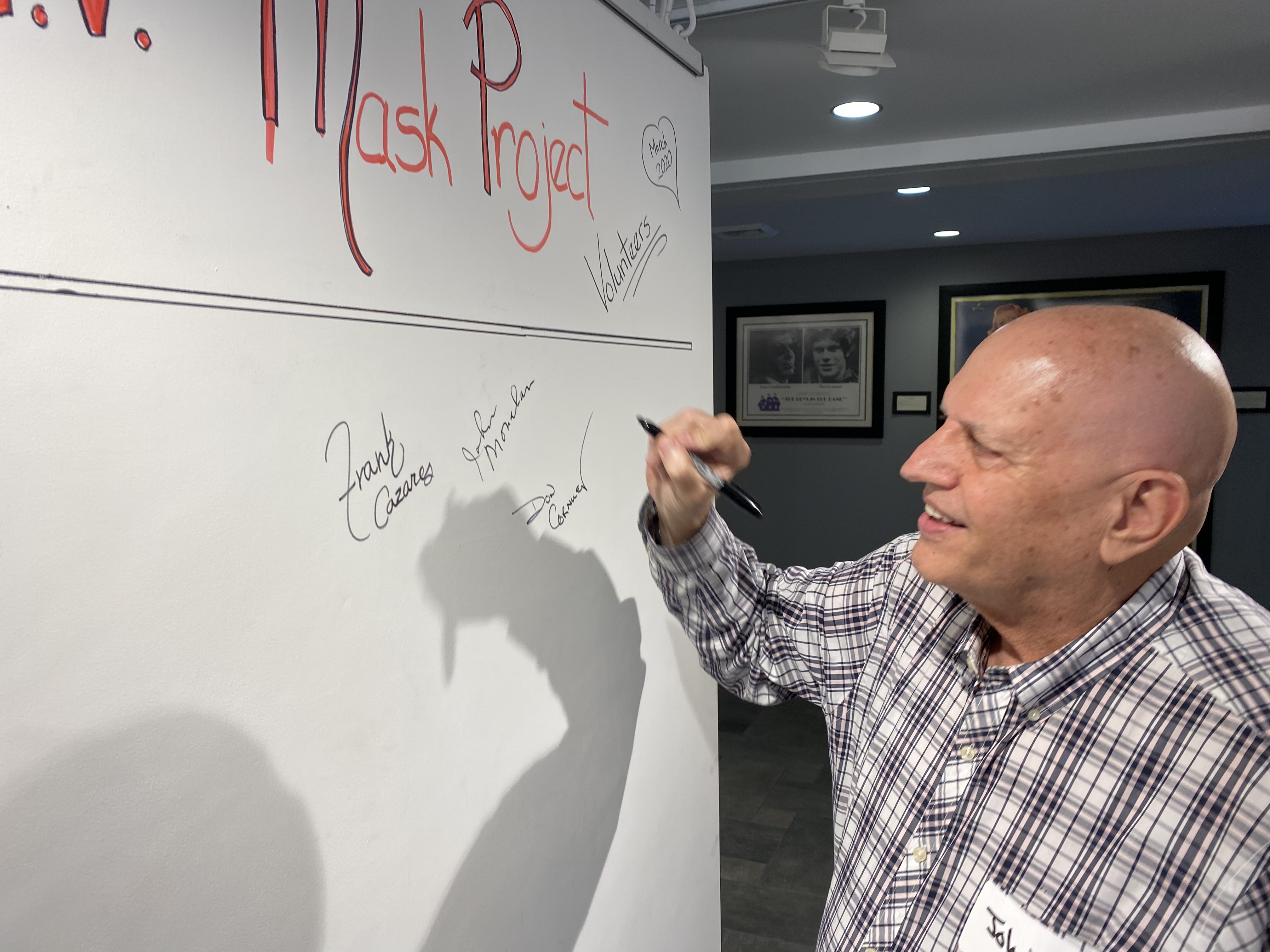
John Monahan signs up as a volunteer.
Monahan loves his Palm Springs community, and he knew that others wanted to help those in need during the COVID-19 pandemic. He rallied his personal network of friends and colleagues, and quickly wrote a business plan to create and distribute protective gowns, the item most needed by medical professionals at Eisenhower Health (a nonprofit hospital system serving the Coachella Valley in Southern California).
“We learned they were about to run out of gowns within one week,” Monahan said. “We built a website so people could get involved. I offered to set up headquarters at my building in Palm Springs. A doctor at Eisenhower gave us a sample of a gown, and a friend of mine in the fashion industry created a pattern. Then we set up a distribution area for cutting fabric and sewing the gowns.”
Since then, hundreds of people have volunteered. Using landscaping material for now (a readily available fabric), the on-site volunteers cut the fabric and make kits for others to take home and sew into gowns. Each kit results in 10 gowns. Volunteer drivers are helping with delivery and pickup of finished gowns, when needed.
“It’s been pretty overwhelming. So many people are willing to volunteer and do anything they can to help,” Monahan said. “We are gearing up to make about 2,000 gowns a day. This will go on until the crisis is over or until the supply chain can fulfill their needs. I don’t know what they’d be using without them. They ran out of the ones they normally use a day or two ago.”
Learn more at www.cvmaskproject.com.
